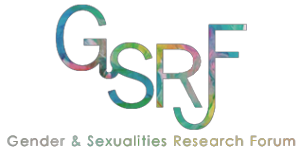When –
Where – City University London- Room AG20 – College Building
Please book your free place here
There is a now vast literature that relates to Foucauldian themes, but which aspects of debate are most pertinent to your specific investigation? How might you mobilise them? In this lecture-plus-workshop, Professor Vikki Bell explores the possibilities for reading Foucault’s thought within feminist analyses in a way that prioritises potential directions and questions for your own projects. Topics that will be covered in the lecture include: the concept of genealogy; modalities of power; subjectivity; performativity, and the work of Judith Butler; bio-politics. In the workshop, further issues will be discussed as they arise from our discussions.
This event is directed at PhD students and ECRs, we recommend the following readings and to come along with questions/points for discussion to make sure everyone gets the most out of this event!
Bell, V (2007) The Promise of Performativity: Theory and/as Political Ethic. In: Bell, V. Culture and Performance: The Challenge of Ethics, Politics and Feminist Theory. Oxford: Bloomsbury: 11-28.
Bell, V (2007) Performativity Challenged? Creativity and the Return of Interiority. In: Bell, V. Culture and Performance: The Challenge of Ethics, Politics and Feminist Theory. Oxford: Bloomsbury: 97-120.
Butler, J (1997) Subjection, Resistance, Resignification: Between Freud and Foucault. In Butler, J. The Psychic Life of Power. Stanford: Stanford University Press: 83-105.
Butler, J (2004) Violence, Mourning, Politics. In: Butler, J. Precarious Life: The Powers of Mourning and Violence. London: Verso: 19-49.
Foucault- Lecture on bio-politics: 17th March 1976 from Society Must be Defended: Lectures at the College de France 1975-6
About the speaker: Professor Vikki Bell
Vikki Bell is Professor of Sociology and Director of the Unit for Global Justice in the Sociology Department at Goldsmiths, University of London. She studied Social & Political Sciences at Cambridge and gained her PhD at Edinburgh University in 1992. She has taught across all levels at Goldsmiths since she joined in 1993, and has convened the MA Critical & Creative Analysis. She has been a Visiting Scholar at Berkeley, University of California, Yale University, University of Buenos Aires and the International Institute for the Sociology of Law (Oñati, Spain). Vikki is the author of four monographs, including Culture and Performance (Bloomsbury, 2007). Widely published in peer-reviewed journals, she has addressed questions of ethics, aesthetics, subjectivity and politics across the social sciences and theoretical humanities. Recently her work has explored cultural-aesthetic aspects of transitional justice in Argentina, where her research has been funded by the Arts & Humanities Research Council and, in 2015-7, by the Economic & Social Research Council. The most recent publication from this project is The Art of Post-Dictatorship: Ethics & Aesthetics in transitional Argentina (Routledge, 2014). This work has recently extended to include Chile.


